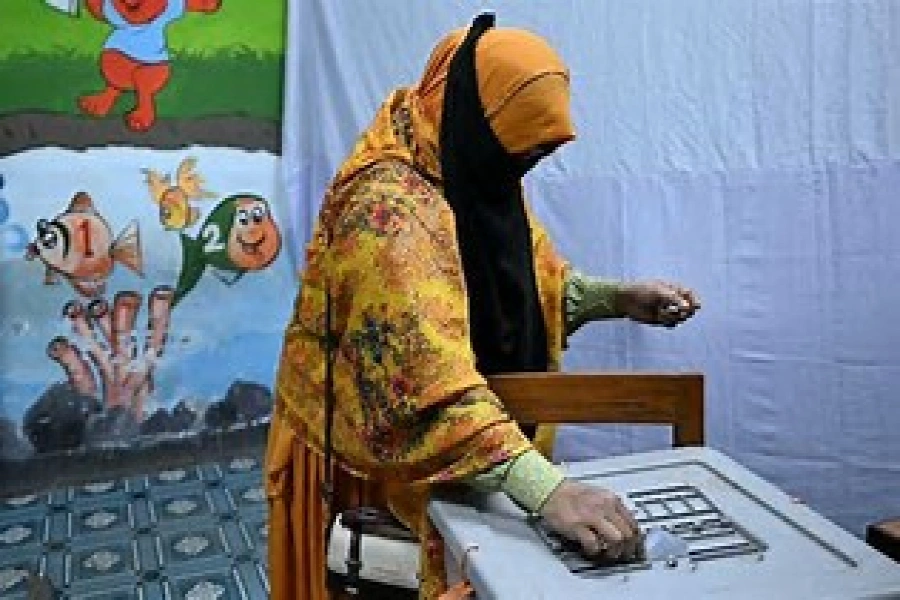KATHMANDU, Sept 26: Tribhuvan University (TU) has eased the process for obtaining degree equivalence, making it more accessible to students. Under the revised policy, students who have studied at internationally ranked universities will find it easier to obtain equivalency from TU.
Bishnu Aryal, chief of the Secretariat of the Executive Council, stated that during a meeting held on August 30, the TU Executive Council has eased the procedures for recognizing and granting equivalence to higher education degrees in 2022. Aryal said that he has instructed the TU Curriculum Development Center to implement the revised policy starting from the current academic session.
The previous equivalence process was criticized for being overly complicated, especially for degrees from top-ranked international universities. Under the newly adopted guidelines, students need only submit documents specifying the university's rank in the Times Higher Education World University Ranking, from 1 to 500, to be considered for equivalence. The revised policy also eliminates the requirement to investigate intellectual theft while giving such titles.
Sushil Dahal, chief of the equivalence section of the Curriculum Development Center, said that the equivalence of the degrees of those universities will not be stopped on the basis of admission eligibility, duration of study or credit hours and course load. According to the revised procedures, now students will find it easier to obtain equivalence.
2025 set to be among 3 warmest years on record: EU climate moni...

“While the past procedural hassles have reduced, the documentation must be accurate,” stated Dahal. “In the context of open and distance education, qualifications earned through online and private mediums in technical subjects like science, technology, engineering, medicine, forestry, agriculture, and information technology, will not be recognized and given equivalence,” he said. “In the past, there was a provision that even the universities run in the country had to take equivalence from the University. The revised procedure has removed that provision,” Dahal added.
In the current situation, there is a provision that students who come to Nepal after obtaining academic qualification degrees from domestic and foreign universities must take an equivalency from Tribhuvan University. However, the students had to face distress during the process of taking equivalence from the Curriculum Development Center.
Chief of the Executive Council Secretariat Aryal said that Tribhuvan University is being criticized in relation to equivalence while fulfilling the responsibility assigned by the government. The university has taken some decisions to ease the process of obtaining equivalence to address the complaints of the common people.
Since Tribhuvan University is the oldest university of Nepal, it not only fulfills the government's responsibility but also provides necessary equivalence for other universities in Nepal. Similarly, the best universities in the world are changing the admission requirements, duration of study or credit hours, course load based on current needs and long academic practice. "That's why the university has adopted the national responsibility and good university practices," Aryal told Republica. "From now on, when providing equivalence to degrees obtained from other universities abroad or universities in Nepal, the admission eligibility, study period or credit hours, and tuition of universities that are at the level of 1 to 500 can also be based on the revised procedure," he mentioned. According to him, they have been examining the 'intellectual theft' of universities that have signed an agreement with Tribhuvan University, and even if their standards are different from those of Tribhuvan University, the procedure has been arranged to provide recognition.
Aryal also clarified that Schedule 2, which previously required students to submit multiple documents, has been eliminated as some of the requested documents seemed impractical. Consequently, students will no longer be required to produce documents showing their research director or assistant director's status as a regular professor at the same university. The procedure has also been simplified for teachers and staff who permanently enter TU's service, as they will receive equivalence for their degrees before their employment.
In addition, if the research director or co-director is not a regular teacher of the same university, the student can get equivalence only if he/she submits a letter of permission from the university where he/she works. "Therefore, Schedule 2 of the procedure with such provisions has been removed," Aryal said, "Teachers and employees who have permanently entered the service of the TU by examining the certificate for the purpose of entering the service will be provided with the equivalence of all their degrees before entering the service."
According to the revised procedure, the Universities, Eastern University Act 2050, Lumbini University Act 2063, Far Western University Act 2067, Mid-Western University Act 2067, Agriculture and Forestry University Act 2067, Nepal Open University Act 2073, and Rajarshi Janak University Act 2074, are authorized to recognize domestic and foreign university or educational institution qualifications and establish equivalency and grading for various levels of educational qualifications offered by the university through the respective Acts.
Henceforth, TU will only provide degree equivalency to students applying to TU Service Commission or enrolling for studies at TU. However, if requested by the Nepal government, provincial government, local body, or other organizations, equivalence will be provided.
The policy also states that MPhil and PhD degrees obtained through open and distance learning methods will not be recognized.







































